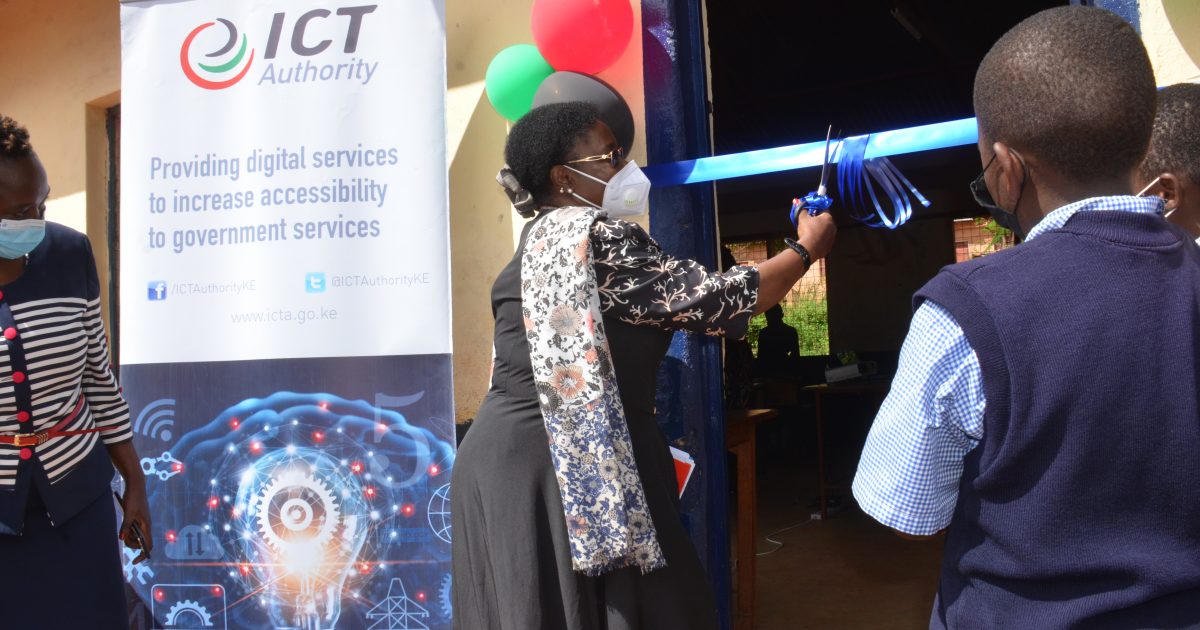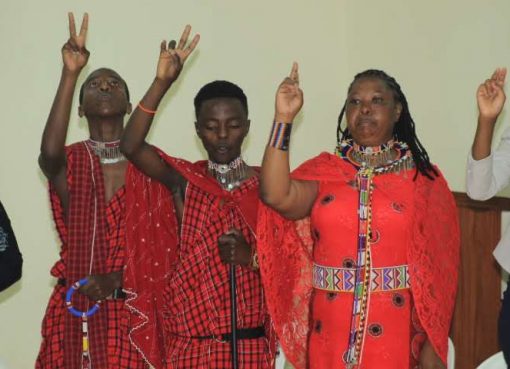The Government has called upon scholars and researchers to invest in extensive orthographic studies on indigenous languages, as part of enriching the diversified content and enhancing Digital Literacy Program under the Competence Based Curriculum (CBC) education system.
Prof. Fatuma Chege, Principal Secretary (PS), State Department for Curriculum Implementation, said under CBC, the indigenous languages included as part of the school curriculum had established and well-developed studies that informed proper content development for use in class.
The PS was speaking at Kitivo Primary School in Mwatate, during the rollout of the pilot phase of the SchoolNet program.
“Indigenous languages are included as part of school curriculum, if they have orthographic studies, to guide the process of content development. This is a key requirement that studies must be available for references,” she said.
She called upon scholars to promote research in orthography of indigenous languages that would ultimately allow creation of digital content for learners across the Country.
Orthography refers to a whole set of language components that focuses on aspects like pronunciation, spelling, cadence, inflection and nuances that guide on how specific language is either spoken or used. Scholarly studies and peer-reviewed publications on such languages offered a reference point and a foundation for curriculum development for use in schools.
Noting that CBC was an all-encompassing curriculum, the PS stated that Digital Literacy was also a key component of the new curriculum and would help unlock learners’ full potential as a way of exploiting their latent capabilities for suitable career choices.
She further pointed out that CBC allowed learners to explore and develop interest in their areas of choice unlike in the past, where children’s career paths were pre-determined by preferences of their parents and guardians.
“This is a learner-driven program, where children will choose career paths based on their strengths in different fields. Teachers and parents will support those strengths,” she noted.
The colorful launch was attended by other senior officials, including Deputy Governor Majala Mlaghui and Ms. Lucy Mulili, ICT Authority Board member, who was representing the PS for ICT. Others were Mwatate Deputy County Commissioner, Damaris Kimondo, TSC County Director, Silas Mugo, Mbaruku Wangai, County ICT Officers and other officials.
Kitivi Primary School is the only primary public learning institution in the Coast region where the program is being piloted. The schoolnet connectivity project is being piloted in 13 primary public schools across the country. After piloting, the program will be rolled out to 1,500 primary learning institutions in Phase 1.
The project is being implemented by a partnership of Ministries of Education and ICT and Innovation, ICT Authority, UNESCO and Huawei.
In Taita-Taveta County, 194 schools out of 210 have already been covered by the Digital Literary Program, with over 7,000 learning tablets distributed to learners. Additionally, 388 devices have been given to teachers, while 194 projectors are in selected schools to enhance classroom digital learning experience.
With tablets provided to learners in public schools, the next phase is installing network distribution infrastructure that will enable schools to go ‘live’. To support this initiative, the government is connecting schools to the internet through the National Optic Fibre Backbone Infrastructure (NOFBI). This sought to connect schools less than a kilometer from the fibre and use microwave point for schools within a 10-km radius.
The Program is expected to introduce learners to use of the internet to support educational activities and promote research. It is also expected to bridge the digital gap that exists between educational institutions in urban and rural areas through extension of internet bandwidth to far-flung and remote schools across the 47 counties.
The PS also called for responsible use of the tablets and insisted on enhancement of digital and cyber security for learners while using the internet for research.
“There should be responsible use for tablets, especially now that our learners can access the internet,” she said.
Taita-Taveta Deputy Governor, Majala Mlaghui hailed the schoolnet program, as a game changer. in how learning was done in schools.
She noted that schools would produce tech-savvy learners, to easily fit in a world where everything was being digitized and interactions were going virtual.
“Digital lessons the learners are getting will hold them in good stead in a world that is rapidly getting digitized,” she said.
She added that the County Government would collaborate with the National Government to roll out internet connectivity to all the public facilities in urban and rural areas, as a way of enhancing service delivery.

Senator Johnes Mwaruma, a strong proponent of indigenous languages in schools, had raised a question at the Senate on why Kitaita and Sagalla languages were missing from CBC curriculum.
He later made a public call to scholars in the region to provide the orthographic materials on local languages for forwarding to the Kenya Institute of Curriculum Development (KICD) for evaluation.
“I have received materials from scholars that I intend to give to linguistic experts at KICD for evaluation. We hope to have our two languages included in the curriculum for indigenous languages,” he said.
Local ICT promoters predict that with the rapid growth of Ajira Digital Program and establishment of Youth Empowerment Centers with high-speed internet connectivity, creation of online jobs for young people will be on the rise and reduce the rate of unemployment in the region. They also predict a rise in demand for digital content for learners in schools.
Mr. Michael Yande, a net provider in Voi, says the digital literacy in primary schools was eliminating the inconvenience of retraining employees on computer literacy.
He said that learners would leave schools already equipped with skills that will allow them to seamlessly transit into the job market.
“We will not need to train them in internet use. They already have the skills required for online jobs and other digitally-enabled employment,” he said.
By Wagema Mwangi




